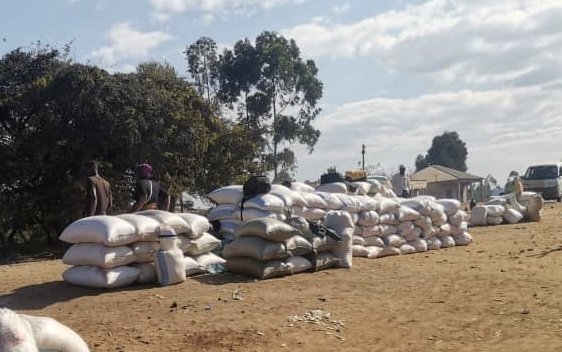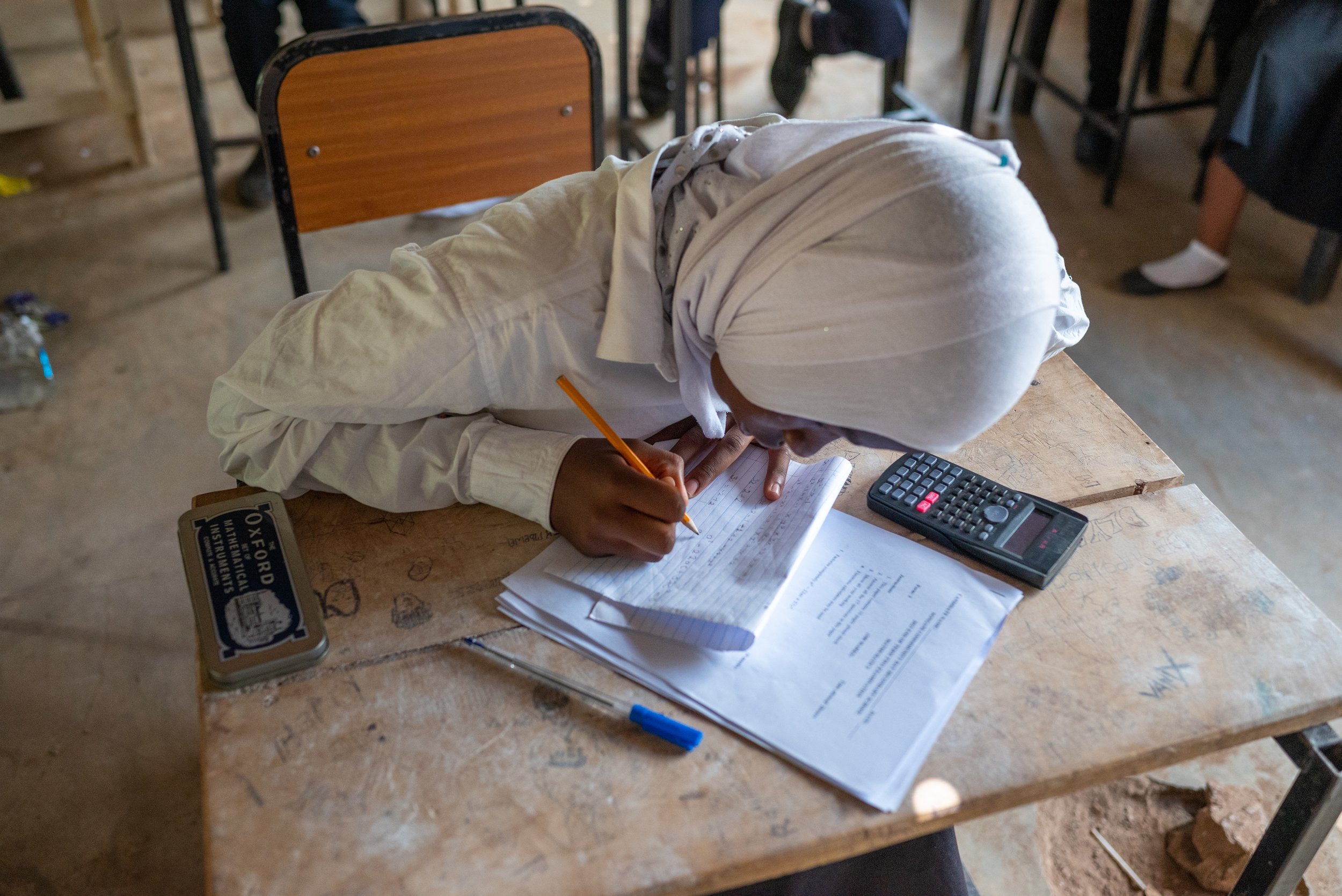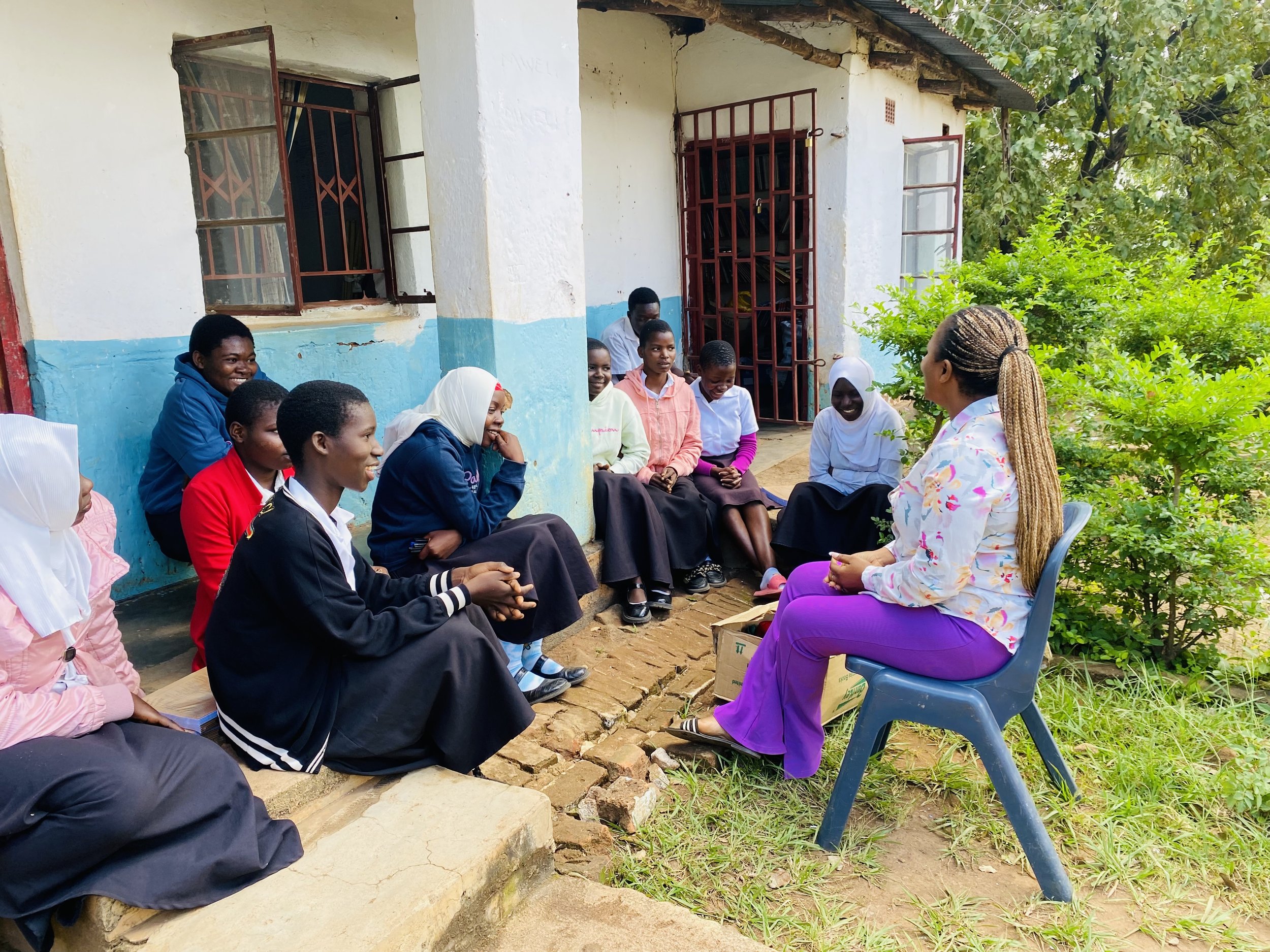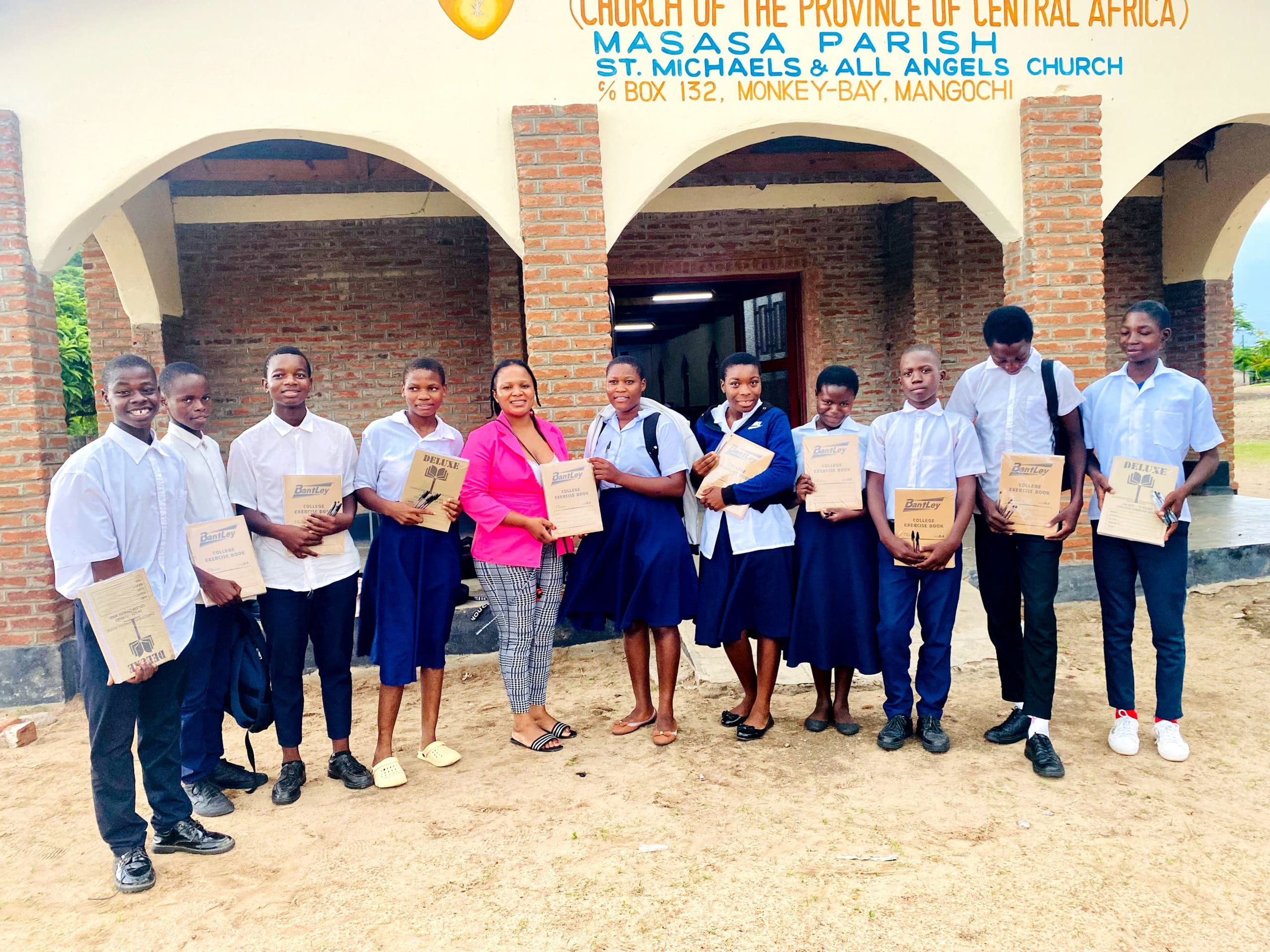Challenges in our Orphan Education Programme
Things changed dramtically in March 2023 with Cyclone Freddy. We didn’t realise at the time what the impacts were going to be. In our area of operation the cyclone destroyed not only people’s homes but also their crops. Hunger intensified and the price of Maize went up dramatically. In 2024 the harvest was not what people were hoping for, many had not been able to afford fertiliser which had increased in price significantly, partly a result of the Ukraine war.
Photo by Jim Loring
We are now in 2025 and again the most recent harvest has not met people’s hopes. The intensification in hunger has been noticeable with the hungry season starting earlier. We see the impact of this on our orphan education students who struggle to endure days at school feeling hungry. We have always tried to provide every student with a bag of Maize to help get through the hungry season but in recent years this has not been enough. Even though the latest harvest was in April Daphney Phiri reports in May that ‘it is disheartening to see that many student’s households have not harvested enough to sustain themselves and in some cases there was no harvest at all.’
Maize purchased for MOEP students in 2024
If that hasn’t been enough inflation in Malawi has been running at around 25% in 2022 and reached 33% in November 2023. These rates have remained this high until recently when they returned to the upper 20’s. Food inflation has been higher. We have seen cost increases in the MOEP programme in all budget lines - uniforms, school fees, shoes and transport to name a few. The only gain for us has been a devaluation in the kwacha which means we are getting more kwacha for our pounds but this does not match the inflationary costs.
inflation in Malawi
Our students, as orphans, have many vulnerabilites and we have had a significant increase in safeguarding concerns and the need to intervene in household situations to protect our students. Most of this is driven by hunger and poverty.
You may wonder how have we been able to manage this? We have used up our reserves to cover increasing costs. We have appointed a second student support officer (part-time) to work with Daphney Phiri to help manage the workload. Monitoring student homes is time consuming and costly but it is one of the unique aspects of our programme and helps ensure that students stay in school.
Photo Jim Loring
We recently wrote a bid for funds (unsuccessful) to support students with the aim of improving attendance in a certain secondary school. As part of the research for the bid the school provided us with attendance data. Absence rates for girls in the last two years of secondary school are between 30% and 40%. The biggest reason is hunger, the second is not being able to afford the school fees, the third is period poverty and the last is sickness.
Where we are now is that we have difficult decisions to make. We currently have 88 students on the programme. Eighteen will complete their MSCE exams this month and finish form 4. If we do not recruit any new students in September this leaves us with 70. We are still short of funds for 2025 to 2026 to maintain these 70 students with a shortfall of £5000. In 2022 the programme cost us £21/student/month, in 2025 this is now £39/student/month.
Home visits are an important part of our programme as well as meeting our students in their schools.
Is there any good news? Our students are the good news. They are amazing, determined, resilient and patient. They all want a better future. One such student is Eneless, she is one of seven children. Only herself and her older sister have been able to make it to form four in secondary school. It has not been affordable for her other siblings. Eneless’ goal is to pass on the benefit that she has received by supporting eventually her nephews and nieces. She said ‘ I want to change the story of my family and make my mother proud.’
Our students are our good news! Only 15% of young people in Malawi complete secondary education. We are determined to be part of the story that changes that.






